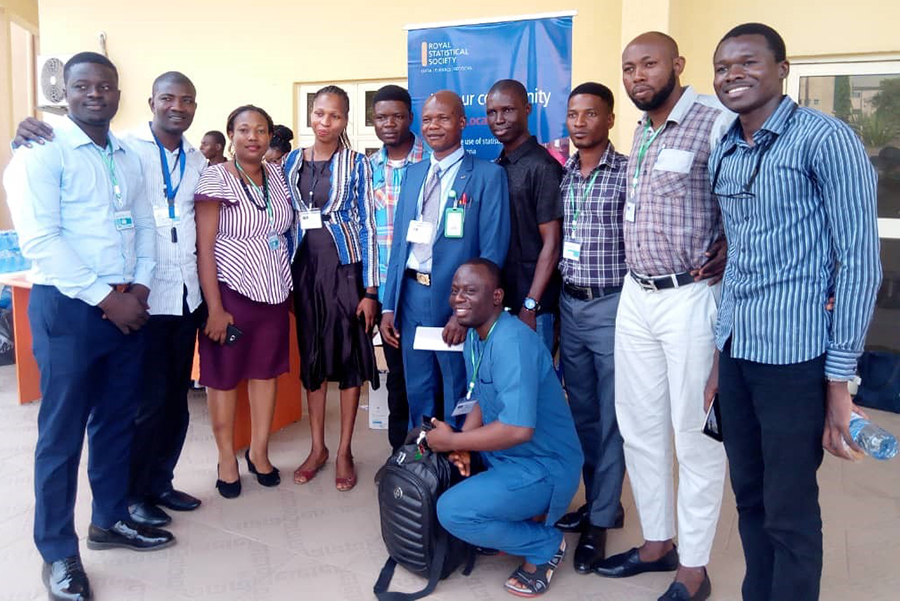On November 2021, the RSS Nigeria Local Group (RSS-NLG) organised a second virtual conference, themed ‘Population data for sustainable socio-economic development’. Topics covered included: population studies, census activities, applications of statistics, business, industry & finance, communicating & teaching statistics, data science, environmental & spatial statistics, medical statistics, methods & theory, official statistics and public policy.
Hosted by Professor Kolawole Felix Salako (vice chancellor, Federal University of Agriculture, Abeokuta) and funded by the RSS and the International Association of Survey Statisticians (IASS), the conference featured the following keynote speakers:
- Dr Sandra Alba MSc, PhD, CStat (KIT Royal Tropical Institute, Amsterdam, Netherlands), an epidemiologist with a background in medical statistics. She has 15 years’ experience in the application of statistical and epidemiological methods to evaluate public health programmes primarily low- and middle-income countries. Dr Alba discussed 'Statistical modelling of health outcomes to evaluate GRID3 as an innovation to improve childhood immunisation coverage in Nigeria'.
- Dr Gajendra K Vishwakarma (Indian Institute of Technology Dhanbad, India) Dr Vishwakarma is an associate professor in Department of Mathematics & Computing, with several years of academic as well as industrial research experience in the field of statistics. He has supervised ten PhD theses and published number of research papers in indexed journals so far. He discussed the effect of measurement errors under additive scramble response on sensitive variable.
- Ahmed Audu (Department of Mathematics, Statistics Unit Usmanu Danfodiyo University, Sokoto, Nigeria). Dr Audu is currently a senior lecturer specialising in sample survey methods and techniques. He has published several papers and discussed large-scale sample survey data: An alternative to population data for sustainable development in the 21st century.
The conference allowed participants to share their research ideas through presentations for further collaboration and networking. Seventy eight papers were accepted and fifty six were presented at the conference and more than 200 participants attended from various establishments including universities, polytechnics, NAFDAC, National Bureau of Statistics, National Population Commission, Central Bank of Nigeria and the Ministry of Finance, spread across the country with five International participants.
